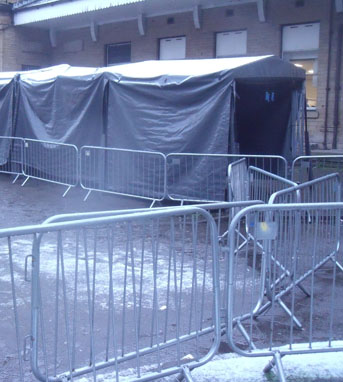The fire service in Greater Manchester has an inability to respond effectively to terror-related incidents – with the service reliant on firefighters travelling from Merseyside to provide this specialist support. So says the HM Inspectorate of Constabulary and Fire & Rescue Services (HMICFRS) which inspected 16 fire and rescue services, including Greater Manchester and Merseyside, as well as producing a national summary report.
In the category ‘responding to national risks’, the inspectors judged that Greater Manchester ‘requires improvement’. The city’s service launched a comprehensive review of all its services in April 2018.
In their report, inspectors say: “Many staff believed the national dispute between employers and the Fire Brigades Union (FBU) – which has resulted in the loss of the service’s MTFA [Marauding Terrorist Firearms Attack] capability – meant they weren’t to attend terrorist-related incidents.”
In detail, the report said of Manchester: ‘… not all firefighters understand how they should respond to terrorist incidents, especially if they find themselves at that kind of incident unexpectedly. The service’s marauding terrorist firearms capability is now largely provided by a neighbouring fire and rescue service. This arrangement is of considerable concern in respect of the safety of the public. The delay of any emergency service responding to such a crisis could very well cost lives. This matter deserves the most urgent attention and resolution’.
The service is working with a developer on a secure messaging system, to allow first responders to communicate securely in real time; and the service is working with a company to develop a product that can count people in and out of high-rise buildings, using domestic electronic devices that connect to the internet. As elsewhere, false alarms are a major drain on resources. The service plans a new policy for false alarms in summer 2019, subject to approval.
Among other shortcomings, inspectors found that Manchester doesn’t have enough controls in place to monitor the competence of its staff. “This is because it has suspended its centralised assessment of incident command and breathing apparatus training.”
As featured in the June 2019 print issue of Professional Security magazine, the Kerslake report, and a progress report one year on, into the Manchester Arena suicide bomb attack of May 2017 covered how the city’s fire service took two hours to deploy at the Arena.
HM Inspector of Fire and Rescue Services, Zoë Billingham, said: “We are pleased that fire and rescue services show real strengths in training for and responding to emergencies – this work undoubtedly saves many lives. However it is concerning that there is too much variation in how fire and rescue services operate, resulting in a postcode lottery in the standards of service the public receives.
“We were particularly concerned about a serious gap in one fire service’s ability to respond to a terror attack. Greater Manchester Fire and Rescue Service does not currently have its own specialist capability in place to respond effectively to terror-related incidents. This must change.
“In this inspection it was encouraging to find that more services have a strong culture and values, where staff are well looked after and are proud to work for their service.”
The 16 were assessed against:
how effective they are in keeping people safe from fire and other risks;
how efficient they are in keeping safe from fire and other risks; and
how well they look after their people.
All 45 fire and rescue service in England will be inspected by the end of the year.
Comment
For the North Yorkshire Police, Fire and Crime Commissioner and national Fire Standards Board member Julia Mulligan said: “Recommendations for greater consistency in how services recognise and respond to risk are helpful. We will ensure these recommendations receive the necessary attention and action they require, with a view to supporting the fire and rescue services in developing a more consistent approach towards risk management.
“The Inspectorate’s comments on the need for the sector to be supported in its quest to reform are encouraging. In the relatively short time Police, Fire and Crime Commissioners have overseen services, it has become clear there is a need for a clear expectation of what the role of fire and rescue services should look like in the future.
“Commissioners are more than aware of the challenges facing them in delivering innovative and preventative practices, in reducing vulnerability and in supporting people in need. Furthermore, we recognise there is work to do to ensure fire and services are representative of the communities they serve. We hope to meet these challenges by using our experience from policing and by working with the Home Office, National Fire Chiefs Council and HMICFRS on this.”
Picture by Mark Rowe; outside Manchester Arena.










